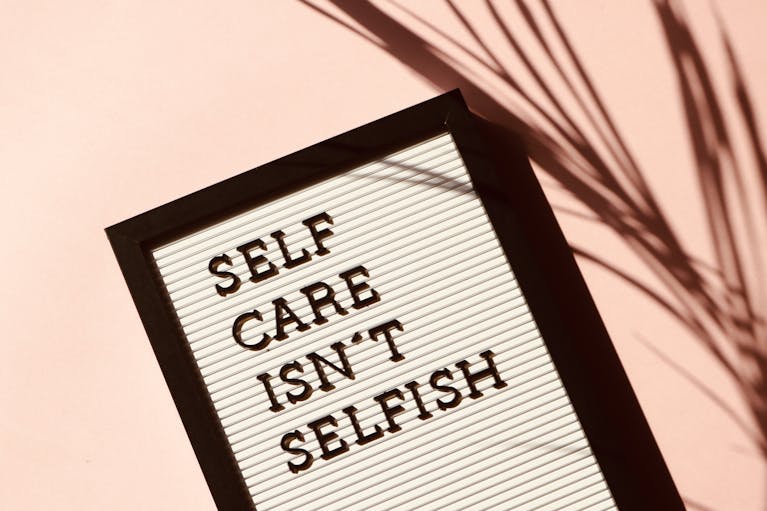The Psychology of Effective Communication: Lessons from Julian Treasure (+ video)
Communication is a fundamental aspect of human interaction that greatly impacts personal relationships, workplace dynamics, and overall well-being. In his influential TED Talk, How to Speak So That People Want to Listen, Julian Treasure offers invaluable insights into how we can improve our communication skills by understanding the psychology behind how we speak and listen. This article will explore the lessons from Treasure’s talk through a psychological lens, incorporating the latest research on communication, and how these principles can enhance mental health by fostering more meaningful connections.

Understanding Effective Communication
At its core, effective communication is more than just transferring information from one person to another. It’s about conveying meaning, emotions, and intentions in a way that the receiver can understand, interpret, and respond to appropriately. Research in psychology has shown that communication plays a crucial role in mental health, with poor communication often linked to stress, anxiety, and deteriorating relationships (APA, 2020).
Julian Treasure’s talk focuses on the art of speaking so that people want to listen, but the psychology behind this involves understanding not only how we speak but also how we are perceived by others. By examining communication through this lens, we can see the power it holds in improving mental health and building better relationships.
5 Lessons from Julian Treasure
Lesson 1: HAIL – The Four Pillars of Effective Speech
Treasure introduces the acronym HAIL, which stands for Honesty, Authenticity, Integrity, and Love. These four principles create the foundation for effective communication. From a psychological perspective, these elements foster trust and connection, which are essential for mental well-being. When people speak honestly and authentically, it becomes easier for listeners to engage, leading to more meaningful and fulfilling interactions.
– Honesty: Speaking truthfully allows for genuine connections and minimizes misunderstandings, reducing conflict and stress.
– Authenticity: Being true to yourself helps create trust and makes your message more relatable.
– Integrity: Following through on your words builds credibility, which is critical in personal and professional relationships.
– Love: Speaking with kindness and empathy promotes a positive atmosphere and reduces tension.
According to research by Brown and Levinson (2017), these principles also reduce communication anxiety, particularly in high-stress environments like workplaces. When communication is rooted in authenticity and kindness, it creates a safe space for both the speaker and the listener, promoting mental health.
Lesson 2: The Importance of Vocal Tone
Treasure emphasizes that it’s not just what we say, but how we say it. Our vocal tone—the pitch, pace, and volume—can have a profound effect on how our message is received. Psychological studies reveal that tone plays a crucial role in communication, often more than the words themselves (Mehrabian, 2018).
For instance, a calm, steady voice signals confidence and makes people more likely to listen attentively. On the other hand, a high-pitched, rushed voice can trigger anxiety in listeners. People are biologically wired to react to certain tones, which explains why vocal modulation can influence the emotional state of the listener.
How to Fix It: Practice mindful speaking, paying attention to your tone, pace, and volume. Pausing before speaking allows you to modulate your tone and ensure that your delivery aligns with your message. By doing so, you can create a sense of calm and trust, which is essential in both personal and professional communications.
Lesson 3: The Power of Silence
In his talk, Julian Treasure highlights the often-overlooked value of silence in communication. Silence allows people to process information and offers the speaker a chance to gather their thoughts. Psychologically, silence is powerful because it gives both parties time to reflect, reducing the chances of misunderstandings or impulsive reactions (Knight, 2015).
Moreover, silence helps manage emotions during heated conversations, preventing arguments from escalating. A study by Gottman (2014) revealed that pauses and periods of silence during conversations can reduce stress, as they give both participants a chance to cool down and think before responding.
How to Fix It: Don’t rush to fill every silence. Use pauses strategically in conversations to give both yourself and the listener time to reflect. This will make your communication more deliberate, thoughtful, and effective.
Lesson 4: Avoiding Destructive Speech Habits
Treasure warns against “the seven deadly sins of speaking”: gossip, judging, negativity, complaining, excuses, exaggeration, and dogmatism. These habits not only weaken your message but can also damage relationships. From a psychological perspective, these negative speech patterns trigger defensive reactions in listeners, which hampers effective communication.
For example, gossip and negativity create a toxic environment that leads to increased stress and anxiety, both for the speaker and the listener (APA, 2017). By avoiding these destructive habits, you can create a more positive and mentally healthy communication space.
How to Fix It: Be mindful of the way you speak about others and the topics you choose to discuss. Focus on constructive conversations that add value and avoid negativity. By doing so, you’ll foster healthier relationships and improve your overall mental well-being.
Lesson 5: Listening as a Crucial Component of Communication
Julian Treasure emphasizes that listening is just as important as speaking. In psychology, active listening is known to be one of the most effective ways to build trust and rapport in relationships. When people feel heard, they are more likely to engage in meaningful conversations, reducing feelings of isolation and improving mental health.
Research by Brownell (2013) found that active listening not only enhances relationships but also reduces stress and anxiety, as it promotes understanding and empathy. When we truly listen to others, we create a space for open dialogue, which is essential for emotional well-being.
How to Fix It: Practice active listening by fully focusing on the speaker, minimizing distractions, and providing feedback to show you are engaged. Reflect on what the person is saying before responding, ensuring you understand their perspective.
Conclusion
Effective communication is a blend of both art and science, and Julian Treasure’s TED Talk offers powerful insights into how we can improve our speaking and listening skills. By incorporating principles such as honesty, empathy, vocal tone, and active listening, we can significantly enhance our communication and mental health. Understanding the psychology behind communication enables us to build stronger, healthier relationships, both personally and professionally.
The lessons shared by Treasure remind us that communication is not just about what we say, but how we say it. As we strive to improve our communication, we should focus on building connections based on trust, empathy, and clarity. By doing so, we not only improve our relationships but also foster a sense of emotional well-being.
References
American Psychological Association. (2020). *The link between communication and mental health*. APA.
Brownell, J. (2013). *Listening: Attitudes, principles, and skills* (5th ed.). Pearson.
Gottman, J. (2014). *The science of trust: Emotional attunement for couples*. W.W. Norton.
Knight, R. (2015). *The importance of silence in communication*. *Harvard Business Review*.
Mehrabian, A. (2018). *Nonverbal communication*. Journal of Communication.
Treasure, J. (2013). *How to speak so that people want to listen*. TED Talk.







